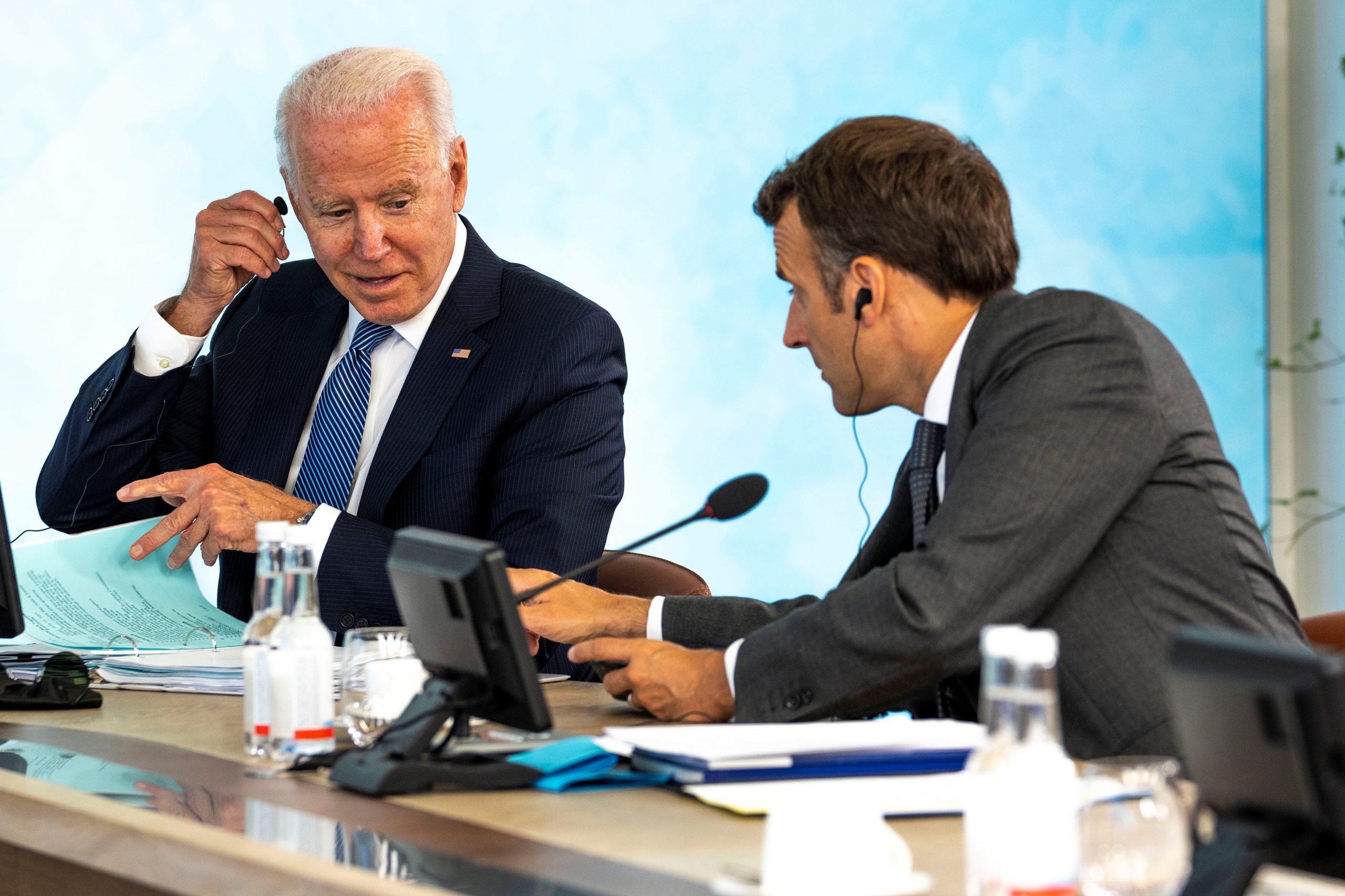French President Emmanuel Macron said on Tuesday he hoped to close a rift with U.S. counterpart Joe Biden when the pair meet in Rome at the end of October, saying he wanted the long-time allies to work together once again “in good faith”.
Reconciliation at the Group of 20 summit on Oct. 30-31 would follow a Biden-Macron phone call last month and potentially end a transatlantic row triggered last month by the United States’ negotiation in secret of a military pact, known as AUKUS, with Australia and Britain to counter China, excluding France.
“We need to look with lucidity at the decisions taken by our allies. There were choices that were made and I can’t say that France and Europe were taken into account, but we have a history that is bigger (than this),” Macron said as he arrived at a summit of EU leaders in Slovenia.
“We will catch up during the G20. I think it is the right occasion to see how we can re-engage,” Macron said of his planned meeting with Biden.
“It is about facts and what to do together,” he told reporters at the Brdo estate outside the Slovenian capital Ljubljana.
Australia’s decision under AUKUS to cancel a lucrative submarine contract with France in September and opt for U.S.-designed, nuclear-propelled vessels incensed Paris. Macron said the episode was a sign that the EU needed to do more on its own, particularly in crises on the 27-nation bloc’s borders.
The EU has also set out its own strategy to increase its presence in the Indo-Pacific and counter China’s rising power.
“We must look at the way Europe should address challenges in its neighbourhood, the crises that exist, its own security and to continue to work in good faith with historic partners and allies,” Macron said, in reference to the United States.
How the EU should deal with China and with the United States was front and centre of the summit dinner.
“We have all observed what happened in Afghanistan, what happened in the Indo-Pacific, what happened with China,” European Council President Charles Michel, who is chairing the summit, said, referring to U.S. strategy that undermined EU priorities. He said the EU needed to show “collective intelligence” to shape Europe’s response.
CALL TO ARMS
Many in Europe now see the abrupt U.S. withdrawal from Afghanistan, during which allies felt ignored when they pleaded for more time, as a warning that Washington under Biden is putting its own foreign policy interests first.
But the EU also wants to be a useful ally to Washington.
“The United States has recognised the importance of a stronger and more capable European defence,” EU foreign policy chief Josep Borrell told the European Parliament in Strasbourg on Tuesday before leaving for Slovenia. “Crises in the European neighbourhood are a call for us to react.”
Macron and U.S. Secretary of State Antony Blinken met for about 40 minutes in Paris earlier in the day and discussed a French push for more security cooperation among European nations, a U.S. official said.
Blinken told Macron that Washington was “certainly supportive of European defence and security initiatives” that can increase capabilities but do not undermine the NATO alliance, the senior State Department official said.
The EU leaders will be joined on Wednesday by the six Balkan countries hoping one day to join the bloc.
As the world’s largest trading bloc, the EU wields power in setting rules that can shape policy far beyond its borders, but it has repeatedly failed to coordinate a common foreign and military policy, weakening its influence.
It is particularly torn over China, the bloc’s second largest trading partner but which Brussels views as a competitor as Beijing seeks to erode the West’s technological edge.
The EU, along with the United States, Britain and Canada, imposed sanctions on Chinese officials on March 22 over human rights abuses, which Beijing denies. Beijing immediately hit the EU with sanctions on European Parliament lawmakers, freezing approval of a recently agreed EU-China investment deal.
(Additional reporting by Ivana Sekularac, Jan Strupczewski and John Chalmers in Brussels, Michel Rose and Richard Lough in Paris; Editing by Jan Harvey, Giles Elgood and Mark Heinrich)
Related

























